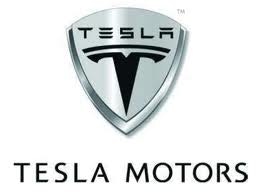In recent months, the rise in demand for electric cars is pushing stocks such as Tesla Motors Inc (NASDAQ:TSLA) higher. The company’s stock has spiked more than 196% (year-to-date). Is one of the driving forces behind the rise in demand for electric cars are the developments in the gasoline market? Moreover, if gas prices will pass the $4 per gallon, will it positively affect electric car sales?
U.S sales are rising
Total electric car sales reached 4,500 in May. Moreover, electric and hybrid sales clocked 245,000 in the first five months of 2013, which is nearly 24% higher than during the same time in 2012. The rise in demand for electric cars also reflects in the first-quarter financial reports of companies such as Tesla Motors Inc (NASDAQ:TSLA): The company’s net sales spiked from $30 million in the first quarter of 2012 to $561.8 million in the first quarter of 2013. Further, Tesla Motors Inc (NASDAQ:TSLA)’s operating loss fell from $88 million to $5.6 million in the first quarter of 2013. This upward trend is likely to persist as more people are switching to electric cars on account of environmental concerns.
The rise in Tesla Motors Inc (NASDAQ:TSLA)’s car quality is also attracting people towards its cars. Nissan Motor Co., Ltd. (ADR) (OTCMKTS:NSANY) also experienced a sharp rise in sales. Nissan’s electric car is the Leaf. During May, Nissan Motor Co., Ltd. (ADR) (OTCMKTS:NSANY) Leaf sales sharply rose by almost 320% (year-over-year) to 2,138 cars. The company’s total car sales reached 66,100 units in May and rose 20% compared to May 2012. Clearly, the Leaf is a high growth market for Nissan, but since the Leaf accounts for only 3.2% of the total number of cars the company sold in May; its effect on Nissan Motor Co., Ltd. (ADR) (OTCMKTS:NSANY)’s sales is still very limited.
On the other hand, car companies such as General Motors Company (NYSE:GM) that sell hybrid vehicles didn’t benefit from the change in drivers’ preferences towards environmental cars. GM’s leading brand in this sector is the Volt. During May, GM’s Volt sold only 1,607 units in the U.S., which represents a 4.3% decline compared to May 2012. The Volt (even less than the Leaf) accounts for a low percentage of total sales of General Motors Company (NYSE:GM) cars in the U.S. – nearly 1.7%.
Nonetheless, during 2013 (up to date), more electric and hybrid cars were sold than they were last year.
But, is this trend partly affected by gasoline prices? To answer this question, let’s look at oil prices.
Oil prices start to pick up
The current price of oil is lower than the price recorded during the same time last year. The drop in oil price coincided with the rise in sales of electric and hybrid cars. Let’s examine the price of oil, which determines the price of gasoline.
In order to determine the effect of oil prices on sales of electric and hybrid cars, I will use the percentage of number of electric and hybrids sold out of total U.S. car units sold. This will control the rise in demand for cars (organic growth). Further, I will also compare the average price of oil to this ratio for the past year. The chart below shows these two data sets.
As seen, the price of oil has moved in an unclear trend in recent months while sales of electric and hybrids have sharply risen. Moreover, the linear correlation between the ratio of electric and hybrid to total cars and monthly changes in oil prices was very low at 0.16. This low correlation suggests a weak relation between changes in oil price and sales of electric and hybrids.




